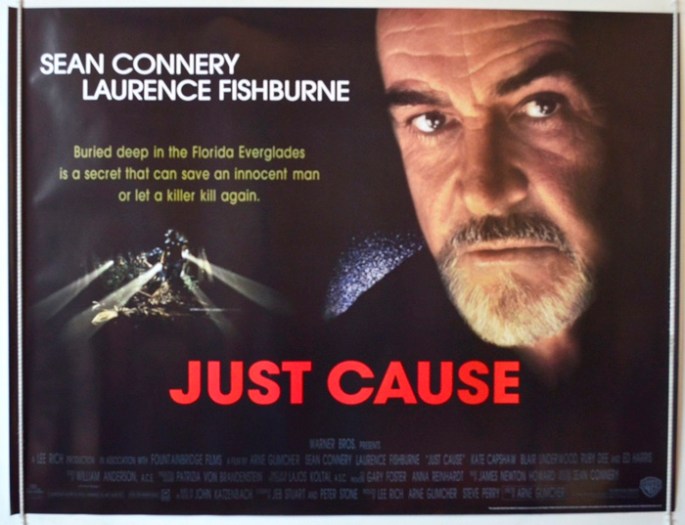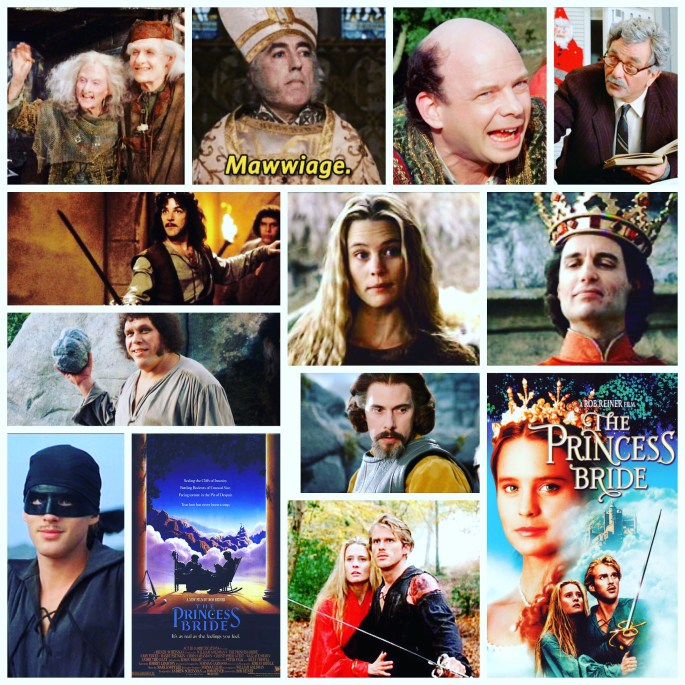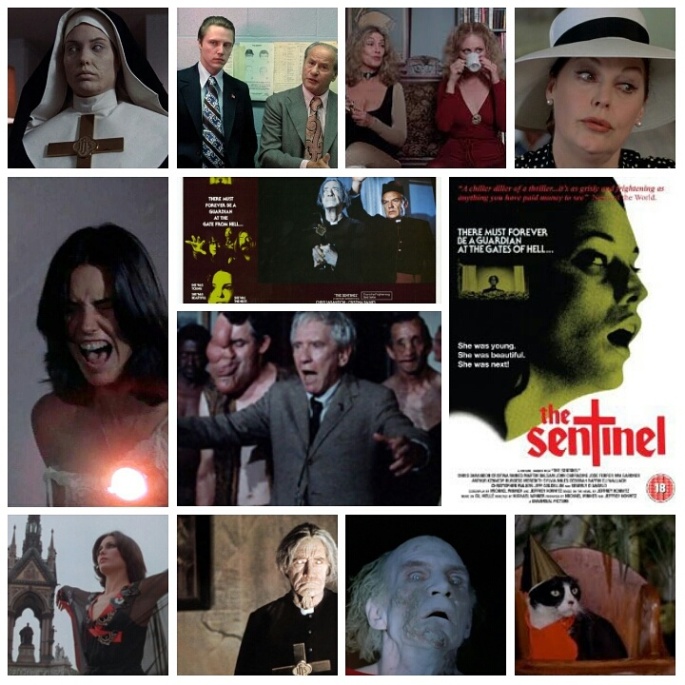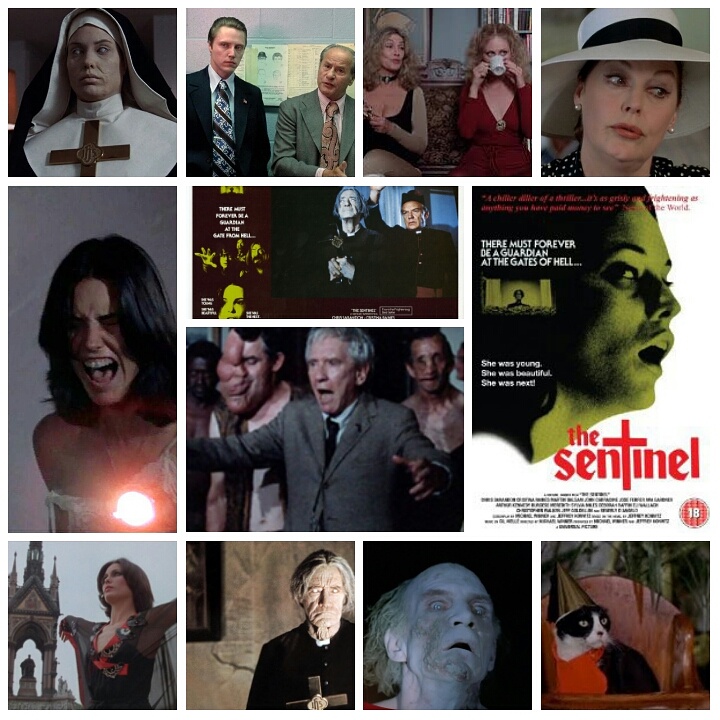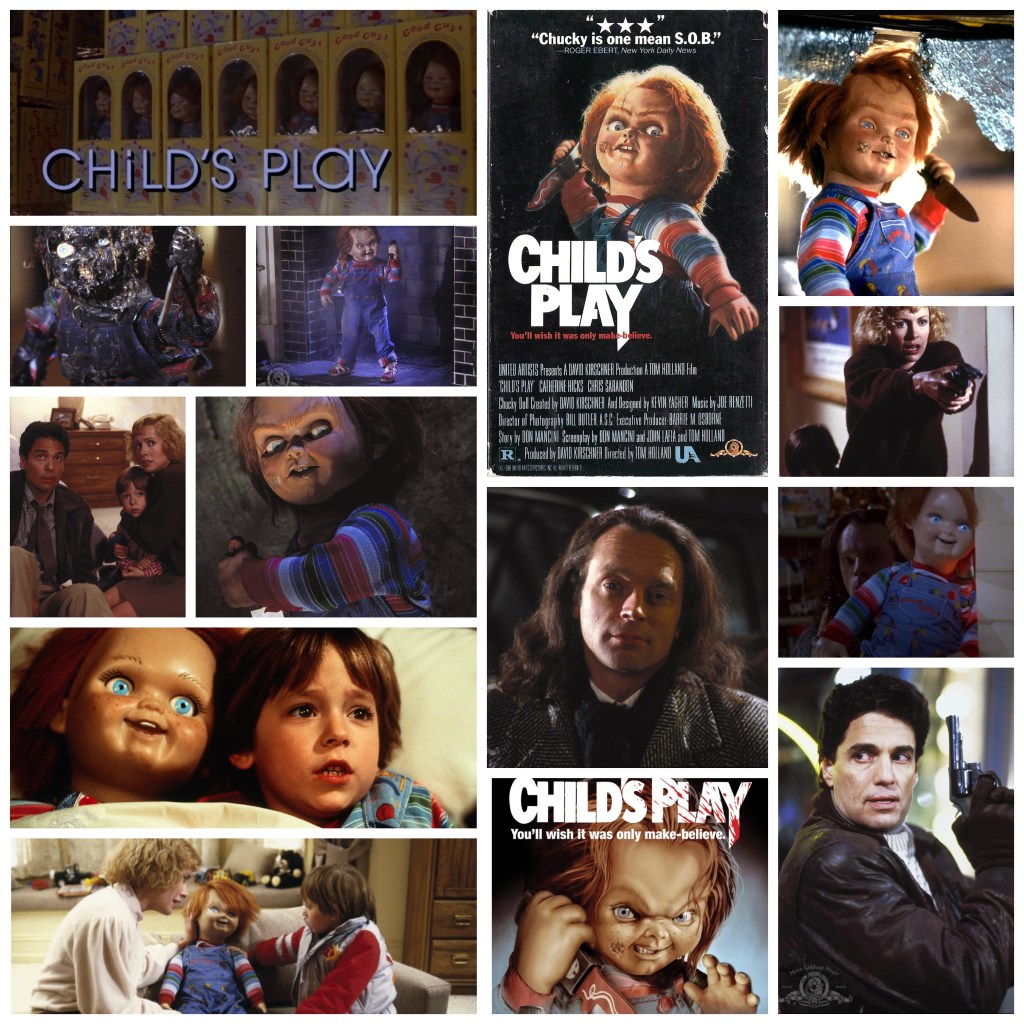
So I’ve been marathoning the Chucky movies for the first time lately and oh my god what a balls out franchise. I’ll start with the first, Tom Holland’s Child’s Play from 1988, because this series starts out slowly, modestly and gradually builds to such a fever pitch extravaganza of meta goofiness and deranged, Joe Dante level lunacy it has me giddy. Everyone knows the story of the first by now: Chicago serial killer Charles Lee Ray (the inimitable, legendary Brad Dourif) is gunned down by a ferocious police detective (Chris Sarandon, always awesome) in a toy factory, but not before using dark voodoo to transfer his soul into a Good Guy doll, which runs about the city on a murderous rampage, eventually finding his way to the home of young Andy (Alex Vincent, adorable), where he proceeds to make life hell for him and his mom (Catherine Hicks). Dourif is key to what makes this character work so well that we’ve gotten as many sequels as we have, I’ve rarely seen an actor do more with his voice, give more dimension, dark humour and genuine malice from behind a recording booth, but this is Dourif we’re talking about after all, this man can pretty much do anything. The first film is a great introduction into the franchise, a series that if anything gets better and better with each sequel, which is really rare in horror but sometimes does happen. The film benefits from Sarandon who is always a rugged, charismatic presence, switching up his evil vampire character in director Tom Holland’s other seminal horror classic Fright Night for a good guy role here, albeit one that’s very rough around the edges, and better for it. It’s fun watching him square off against Chucky and there is one hell of a fiery climax complete with ooey-gooey melting/burning plastic effects and a tirade of madness from the doll and Dourif that is genuinely scary, as far as killer dolls go. Stay tuned for my thoughts on each and every film in this franchise, because they are all gems, and you don’t often get that level of consistency and improvement on quality in slasher franchises.
-Nate Hill

